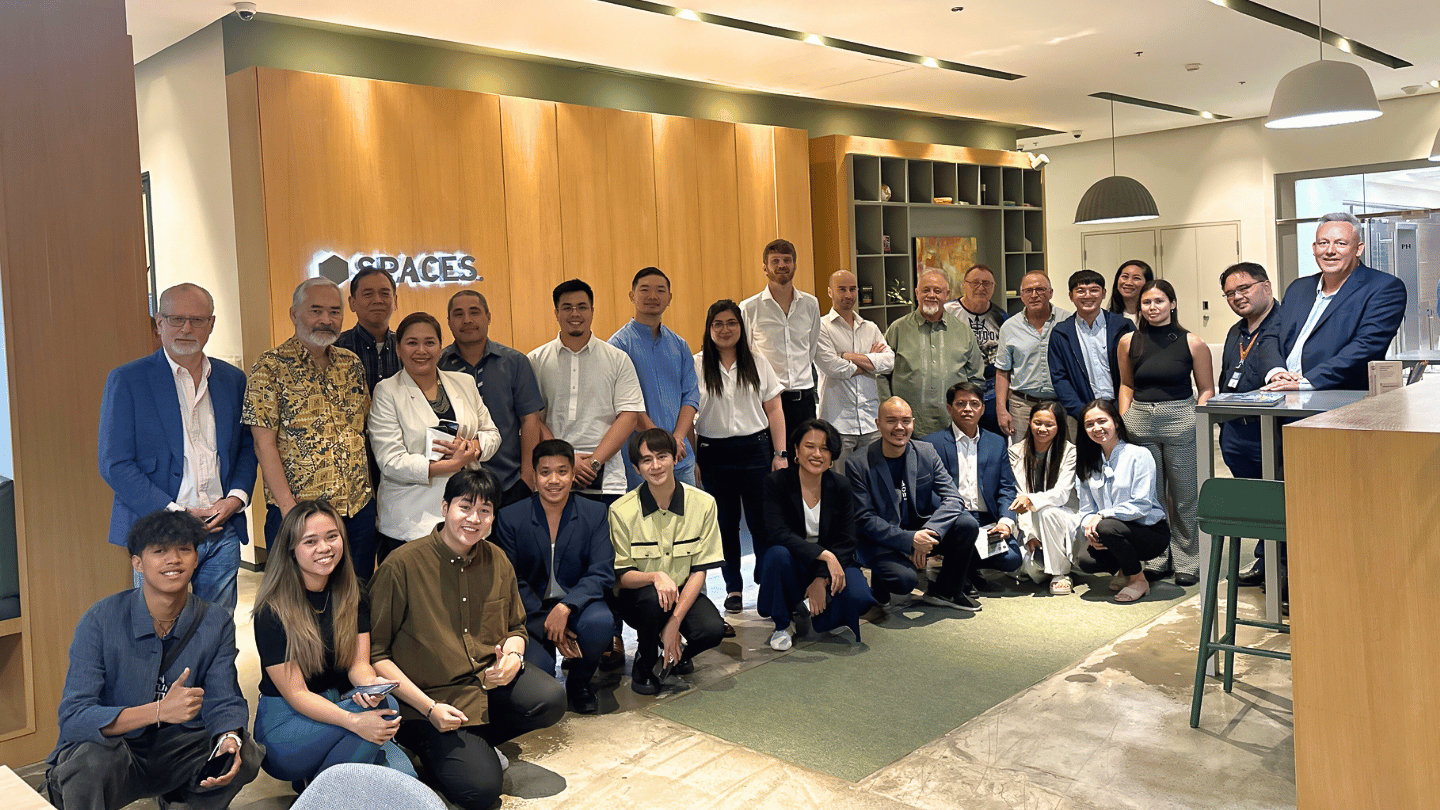“In order for everyone to become sustainable, in terms of businesses, the financial sector has a big responsibility in driving that agenda looking forward.”—Statements from the Sustainability Committee Meeting for January

On 31 January 2024, the Nordic Chamber of Commerce of the Philippines hosted the first Sustainability Committee Meeting and Outlook for 2024 with the topic about the latest status of sustainability in the Philippines, with the invited speaker Jonas Marie A. Dumdum of Nomura Research held at Spaces - Manila, World Plaza, Bonifacio Global City.
Representatives of various companies and organizations attended the event, namely, Artelia Philippines, Inc., Asian Institute Management, BANTU Philippines, Cemex Holdings Philippines, Citadel Pacific Ltd, Entoria Energy, IIEE, Nomura Research Institute, Odfjell Technology Philippines Corporation, OFECOME en Manila, One Earth - One Ocean, Plastic Bank, POSEIDON International, Primer One Industrial, Q2 HR Solutions, RISE Inc., Scandi Divers, Secura International Corp., SOWI Hybrid Industries, Tagkawayan RE Power Corp., Teresa Marble Corp., United Counsel, and University of the Philippines-Diliman.
To kickoff the Sustainability Committee Meeting for 2024, Jonas Marie A. Dumdum, the Industry Solutions Consulting Sector Consultant and Sustainability Service Lead at Nomura Research Institute gave a comprehensive overview of the status of sustainability in the Philippines with focus on Sustainable Finance, Sustainability Reporting Regulations, Human Rights in Business, as well as an overview of what they do at Nomura Research Institute (NRI).
He began his presentation by delving into the existing regulations on sustainable finance, focusing particularly on the banking sector in the Philippines. He emphasized the need for banks to create a more sustainable finance framework that covers social and management risks. He pointed out that banks play a big role in making sure everyone moves towards sustainability, helping businesses and investors in the country.
Jonas further added that: “In terms of sustainable finance, the banks would need to have a system to assess environmental and social risks. Because it’s already a growing trend internationally that in order for everyone to become sustainable, in terms of businesses, the financial sector has a big responsibility in driving that agenda looking forward.”
In a thorough discussion, here are some of the key points he covered during his talk:
Sustainable Finance
In terms of sustainable finance, Jonas pointed out that the year 2024 is set to witness a surge in regulatory frameworks for both the banking and insurance sectors. These impending regulations are expected to drive the Environmental, Social, and Governance (ESG) agenda forward in the Philippines, underscoring the country’s commitment to aligning economic activities with sustainable practices. As financial institutions navigate these evolving standards, a heightened emphasis on responsible and ethical financial strategies is anticipated, fostering a more sustainable financial landscape.
Sustainability Reporting Regulations
For the second point of discussion, Jonas explored the topics on sustainability reporting regulations where he delved into the dynamic nature of sustainability and how it was being defined over the years. Notably, his presentation emphasized the differences between sustainability and the broader concept of Environmental, Social, and Governance (ESG). One significant point he highlighted was the inclusion of the financial aspect into sustainability considerations which opens a new perspective urging companies to assess their impacts not only on the environment and society but also on their financial standing.
Jonas emphasized the importance for businesses to evaluate the impacts of sustainability, particularly in terms of Environmental, Social, and Governance (ESG) and urged businesses to adapt to the evolving sustainability regulations for ensuring the future resilience of their business operations, both in 2024 and in the years ahead.
Human Rights in Business
For this topic, one pivotal takeaway Jonas focused on was the need for businesses to integrate and make the topics of human rights a priority into their sustainable business practices. With various regulations either implemented or set to be enforced globally and locally, EU-based large companies are now required to conduct due diligence concerning actual and potential adverse impacts on the environment and human rights throughout their business chain of activities. This obligation extends to upstream business partners and partially covers downstream activities such as distribution or recycling.
He highlighted significant initiatives from organizations such as the International Organization for Migration (IOM) and the United Nations in the Philippines, which are actively working on developing global and Philippine guidelines for human rights due diligence in businesses. The specific focus is on laborers and migrant workers, aligning with the broader global commitment to ensuring ethical and humane business practices. Additionally, he highlighted the initiatives of the Commission on Human Rights of the Philippines, which is actively developing its own Human Rights Due Diligence for Businesses, with ongoing deliberations at the Commission level.
All in all, as Jonas pointed out, these initiatives collectively underscore the growing awareness, commitment, and the importance of upholding human rights within the business landscape in the Philippines to keep up with the global demand and standards for sustainable practices and operations.
Nomura Research Institute's Sustainability Consulting
To conclude his discussion, Jonas shed light and highlighted what they do at Nomura Research Institute (NRI) as a consulting, research, and IT solutions company, particularly on helping businesses and their clients towards system-based sustainability approaches. As mentioned by Jonas, NRI's commitment revolves around building a robust system within corporations and companies to help them develop and foster continuous improvement in ESG-related activities in their business processes. This strategic approach aligns with the broader industry shift towards integrating sustainability seamlessly into corporate structures, promoting ongoing enhancement, and aligning businesses with responsible and ethical practices.
The event concluded with an engaging open-floor Q&A forum and a dynamic speed networking session, where participants shared and discussed their key takeaways, fostering a collaborative exchange of ideas. The series of insights and takeaways not only provided a comprehensive understanding of the current sustainability landscape in the Philippines but also paved the way for meaningful discussions and collaborative discourse within the participants.
The NordCham Sustainability Committee aims for more collaboration across industries and learning opportunities from experts in the field of sustainability. Since April 2022, the Sustainability Committee has hosted 19 meetings on varying sustainability topics with resource speakers and sharing of best practices, networking opportunities and partnerships, and collaboration with government units.
The next Sustainability Committee meeting will be held on 28 February 2024 from 3:30 – 6:00 PM at IWG Spaces, World Plaza, BGC. The topic of discussion is Sustainable Supply Chain, and to secure your slot you can register through this link.
